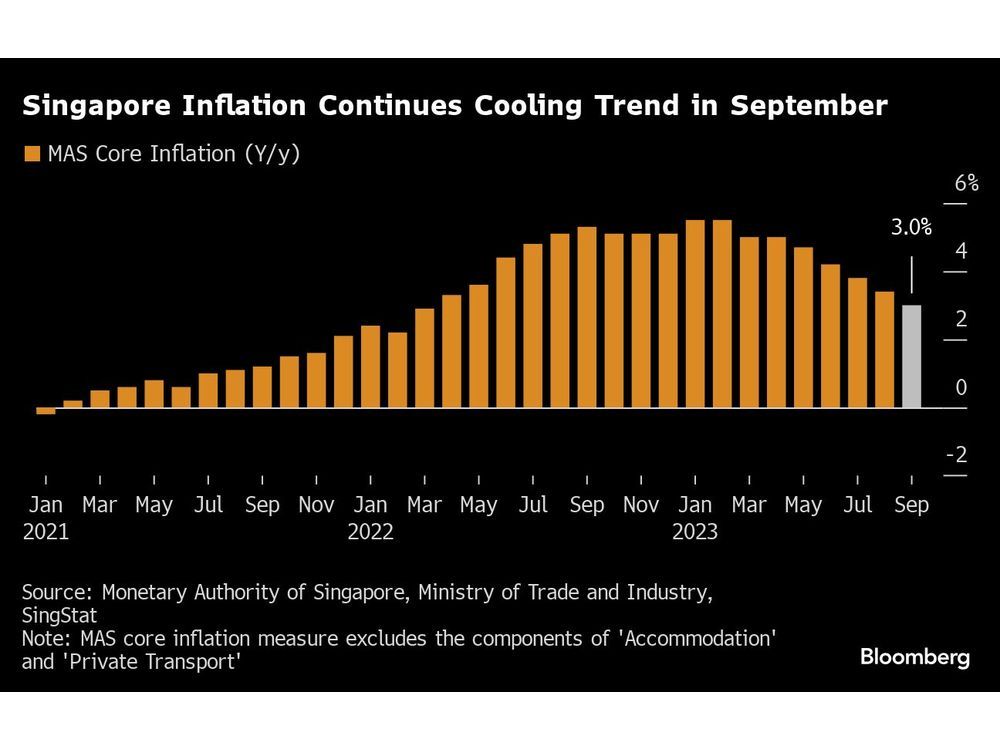


Singapore's new Prime Minister Lawrence Wong is facing pressure to prioritize fighting inflation as he takes office on May 15 [ed5d9bbb]. According to a Bloomberg survey, nine out of twelve economists polled stated that the cost of living remains the most important concern for Singaporeans, with core inflation still elevated [ed5d9bbb]. Singapore's economy has been grappling with sluggish growth and rising inflation, posing challenges for policymakers [233aba0d] [ed5d9bbb]. The central bank has been using the exchange rate as its main policy tool to manage inflation and expects core inflation to average around 4% this year [cc746f63]. However, the recent data shows that Singapore's core inflation decelerated to 3% in September, lower than expected [cc746f63].
Inflation in Singapore has been on the rise, with core inflation reaching 3.1% year-on-year in January [17a9ee70]. The main drivers of inflation were food, transport, and housing and utilities [17a9ee70]. Lower-income households have seen inflation outpacing nominal wage growth, but they have also received more healthcare and education-related subsidies [17a9ee70]. The Monetary Authority of Singapore expects both headline and core inflation to ease to 2.5 to 3.5% in 2024 [17a9ee70].
Singapore's economic growth in the third quarter is expected to remain sluggish as the central bank seeks to balance the task of containing inflation and shoring up the slowing post-pandemic recovery [233aba0d]. Economists expect preliminary data to show gross domestic product (GDP) expanding 0.4% in July-September from a year ago amid tepid external demand [233aba0d]. Manufacturing, one of Singapore's main growth engines, plunged 12.1% in August from a year ago, its 11th consecutive contraction [233aba0d]. In August, the trade ministry narrowed its 2023 GDP growth forecast to 0.5% to 1.5% from 0.5% to 2.5% previously [233aba0d]. The economy grew 3.6% in 2022, slowing from an 8.9% expansion in 2021 [233aba0d].
Singapore's new Prime Minister Lawrence Wong will need to address the concerns of Singaporeans regarding rising inflation and the cost of living. With core inflation still elevated, Wong faces the challenge of balancing the task of containing inflation while shoring up the post-pandemic recovery [ed5d9bbb] [233aba0d]. The central bank's use of the exchange rate as its main policy tool to manage inflation has resulted in core inflation decelerating to 3% in September, lower than expected [cc746f63]. Lower-income households have been particularly affected by inflation, with their wages not keeping up with rising prices [17a9ee70]. The Monetary Authority of Singapore expects inflation to ease in 2024, but the new Prime Minister will need to prioritize addressing the concerns of Singaporeans and implementing measures to mitigate the impact of inflation on lower-income households [17a9ee70].